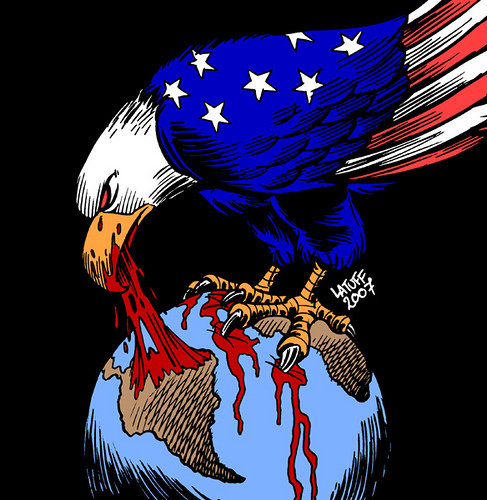Why the U.S. Is Imposing Anti-Dumping Tariffs on China’s Oil Well Pipes
Why Oil Well Pipes?
Zhou Qing’an believes trade protectionism follows a simple rule. China is a large exporting country, and the larger the proportion of exports, the easier it is for protectionism to arise during recovery from the financial crisis. Citing a simple statistic provided by Russia, in 2008, half of all steel and oil well pipes in the U.S. were imported. Of these imports, 60 percent, or three out of 10 of all U.S. steel pipes, were from China. From 2006 through 2008, the amount [of steel imports] increased by 203 percent, expanding two-fold. In other words, the larger the amount of imported products, the higher the degree of [economic] crisis, the easier it is to encounter this type of protectionist trade barrier.
Encountering this sort of situation, people's initial reaction may be to think that Obama will visit soon. [The U.S. and China] will have a good talk, having previously signed an agreement stating that legal cases caused by this friction over trade will cease. But how can this be? I feel that this train of thought may be on most people’s minds, but, in fact, is quite naïve.
In Hangzhou at the U.S.-China Joint Commission on Commerce and Trade, the two sides confirmed that protectionist trade measures will not reappear. However, less than two months later, the U.S. pushed forth a series of protectionist rulings. Why is that?
In the current international trade system, long-term profits are ranked number one [in terms of priority]. Let's take this issue of steel pipes as an example. In the past two years, when the financial crisis first began and the price of oil started to fall drastically from US$140 per barrel, people did not believe there would be an issue with oil well pipes because most oil fields were not willing to increase their production. However, now that the price of natural gas is bouncing back, many oil companies are looking to recover a large scope of production and need oil well pipes to do so. U.S. steel companies have realized that, originally, oil well pipes were a market with huge profits.
Thus, we need to organize groups to lobby the U.S. government to abolish its former rules. According to the U.S. Democratic party, though, steel labor unions are a very big constituent group and are thus very important to that political party. The democratic government very well may push for compromise, for the sake of [the union's] profits. However, there is a problem here that we frequently cite: this reaction is not practical because as soon as difficulties emerge, we look to international trade for profits. Take, for example, the movie “2012;” the four ships of Noah’s Ark were all “Made in China” and built with Chinese steel. Envision, if you will, if Chinese steel was blocked by American protectionism, we may not have had the four ships of Noah’s Ark to save the 30,000 people left on Earth.
What do we do to decrease the risk of friction from trade protectionism?
In the long-term, in the face trade protectionism, we frequently assert that our businesses will transform industry, an increasingly common response from the Chinese. However, transforming industry occurs in the long-term; it is not something we can realize in the short-run. In fact, at this time, it is very important to note China’s Bao Tuan Heating Company; not all of our companies face the same anti-dumping penalties. So can all of our businesses stand united in a single response? On the other hand, many companies, especially big companies, can still set up factories abroad because the current anti-dumping penalties are aimed at steel and oil well pipes produced in China. Perhaps setting up factories overseas is the solution to this problem.

